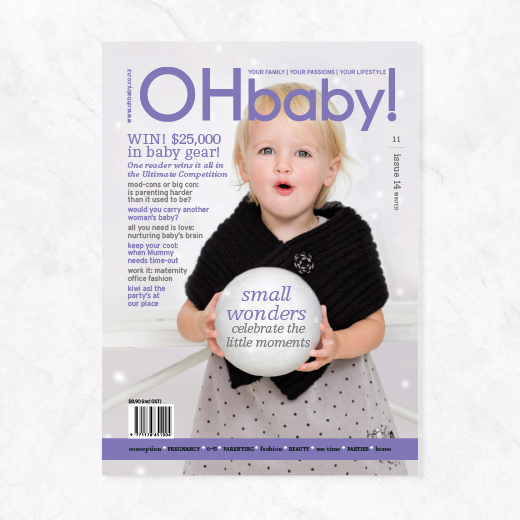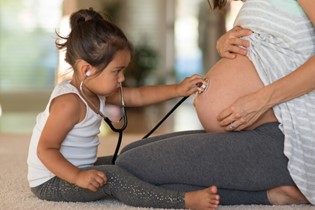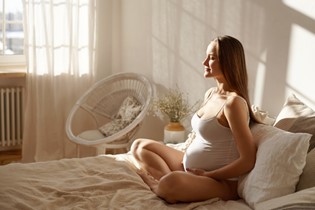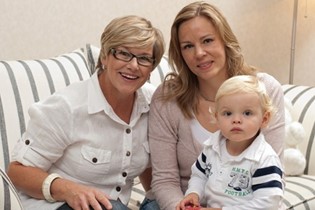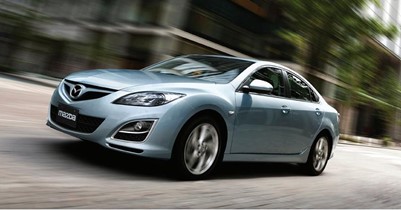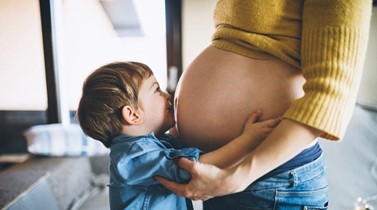Can we afford to have a second child?
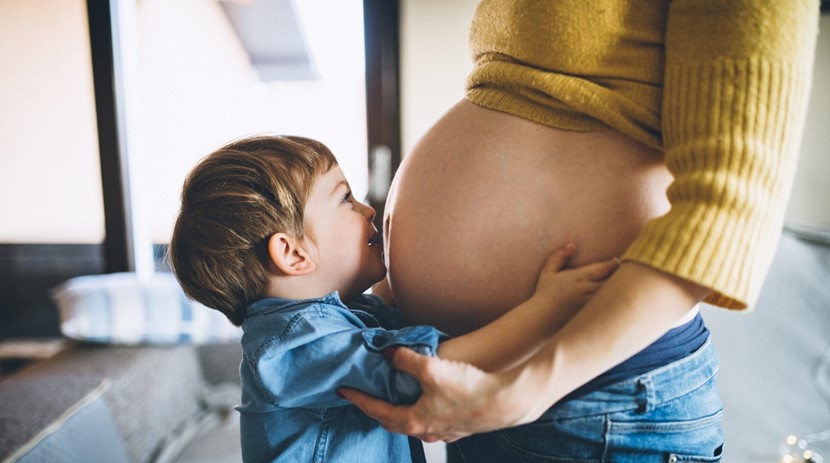
If you're feeling broody it might be time to consider the dollars and cents of adding to the family. Rochelle Gillespie explains.
In an ideal world the only currency you'd need to increase the size of your family would be love. But the sad reality is that in today's economic climate the financial costs of raising a child can affect the emotional gains. You'll undoubtedly give any newborn child as much love and affection as you can muster. But a child costs money, and money is the number one cause of arguments and stress in a relationship. If you can research, plan and budget for another baby ahead of time, you'll have a realistic expectation of what's coming up and limit the pressure on the rest of the family.
What is the cost of love?
In the past (and in many parts of the developing world still) having children was an investment in your own future - an insurance policy, if you like. You were insuring that there'd be someone to look after you in your old age. It was also a way to continue the family name, and of course, with infant mortality much higher than it is now, the more children you had, the greater the chance at least some of them would reach adulthood.
Those reasons don't hold much sway in the western world in the 21st century. Now, we choose to have more children simply because we want to (excusing the odd "surprise" additions that still occur from time to time).
In 2018 BNZ estimated the cost of raising a child from birth to 18 years old would be about $285,000, or around $16,000 a year, and that parents would spend an average of $391 a week for a child aged 1-3.
Budget, save, repay!
Long before you should be in need of a pregnancy test you should make a budget. Write down everything you spend over a week - yes, everything - from the big ticket items to the extra chocolate bar you buy yourself at the petrol station. You should be able to see the areas where you could potentially save money, such as the often costly grocery bill.
Creating a budget is the first step to discovering what scenario will work best for you and for how long you'll be able to live on one income. If you are planning on returning to work, are you intending to go back full-time or part-time? You'll also need to consider if it's actually worth your while returning to work at all, given the added expense and complication of another child.
Accountant Julia Wong says in her case she found that returning to her three-day-a-week job was just not possible, when taking into consideration the need to drop her three year old at kindergarten three mornings a week, her eight month old at an aunty's place in the opposite direction, and herself in the Auckland CBD.
"So instead, I decided to do contract work from home which fitted in much better with the needs of my family," she says.
The next thing to do is start saving. If you've gone back to work since having your child/children, take advantage of the added income while you have it and put as much money aside as you can from each pay cheque.
Then get stuck into repaying debt. Financial adviser Dean Picard, from The Insurance Professionals, says you should pay off any credit card or store cards as soon as you can: "Even regular small amounts will make a difference."
Websites such as www.sorted.org.nz are a great resource for planning a budget and working out ways to reduce your debt.
On the home front
Babies may be tiny creatures but the stuff that comes with them takes up plenty of space, and it only gets worse the older they get and the more children you have. If you are already uncomfortable in your current home, it may be time to upgrade. Or can you simply have a declutter? As Julia says, "Remember the cost of buying a new home goes well beyond a bigger mortgage. There are also moving costs, higher insurance, increased rates and, everybody's favourite, the real estate agent's commission."
Where you choose to live will also have implications for your budget. Auckland, Wellington, Christchurch and Queenstown are the most expensive places to live in New Zealand.
However, the cost of living has spiraled. Times are tough and families are feeling the heat.
With such uncertainty in the economy, Dean says one area you shouldn't skimp on is protecting the income of the main earner in the household. "You never know what is around the corner - be it a financial crisis or a catastrophic natural disaster like the Christchurch earthquake. You should provide yourself with peace of mind by taking out income protection insurance."
Likewise, you should add your children to your health insurance policy and consider death and disability insurance for yourself. That said, there are other insurances where you might be able to save yourself money. By increasing your excess on your contents or car insurances you can reduce your premiums. It's best to talk this through with a financial adviser first.
Think long-term
That $285,000 figure for the cost of raising a child until 18 is daunting, but consider how much you earn over the same period. Statistics New Zealand figures show the average annual household income in the 10 years to June 2018 (before-tax) from all regular sources increased 41%, to reach $105,719. Over 18 years that's nearly two million dollars. So, if you have one child, they'll eat up a good 30% of that income. But remember that one child is proportionally more expensive than two due to economies of scale. The second and subsequent child will have hand-me-downs and it'll cost just as much to drive a car-load of children to swimming lessons as it does for one little nipper.
However, 18 may seem a somewhat optimistic age to expect your children to have severed themselves from your purse-strings and be living independently. These days many parents continue to help pay for their children well into the tertiary education years. Which brings us to one of the other major costs of parenting. The sooner you can start saving for your child's education the better. You can either open a bank account for each of your children, and set up an automatic payment to be made on each pay day, or sign up to a specialised education savings fund.
As Dean Picard says, "There's no better time to think about this than now. Small contributions invested carefully will ensure your children can get a quality education in order to achieve their dreams."
Indeed, anything is better than nothing.
Education will also be a consideration when you're deciding where to live. Is it better to spend more on a house in your preferred school zone? Or perhaps you'd like to send your children to private education? Remembering that if you send one, you'll likely send them all, and you'll want to ensure school fees won't put too great a burden on the family finances.
You'll find that the cost of having a child changes as they grow. The first couple of years will involve a big spike in spending, then it will plateau out for a few years, peaking again when they become brand-obsessed teenagers with a seemingly endless appetite.
Also, think about what kind of lifestyle you want for your family. Are overseas trips something you would like as a family treat, or are you happy spending less money closer to home?
It's a universal truth that the more we earn, the more we spend. Julia says, "My parents earned a quarter of what my husband and I earn and they still managed to raise three healthy, well-adjusted children in a loving home. We didn't have all the fancy gadgets and do-hickeys my girls seem to require, but we were loved and we were happy, and that's all you can ask for."
Higher-income households spend more on their children than lower-income households, but as a proportion of their income it's actually less. Still it's important to be conscious of your discretionary spending and don't fall into the trap of "stroller envy". A prettily decorated plastic bottle and some dry rice, will serve baby just as well as a snazzy rattle from a fancy store. Sure, those things are nice, but leave them for Grandma and Granddad to buy when they want to spoil the little ones. Your money is better spent elsewhere.
Money-saving tips
It's not all about skimping and saving, but more about getting good value for money. For instance, if you buy food with good nutritional value, then you're getting better bang for your buck. Here are a few more considerations and ways to limit the impact on the bank account when baby comes:
💰 Breastfeeding is certainly cheaper than formula, but don't forget to budget for a breast pump, bottles and associated feeding paraphernalia.
💰 Nappies are another expense you can minimise if you opt to use cloth nappies exclusively or in combination with disposables.
💰 Buying in bulk can also save you money (and many online nappy delivery services will deliver to your door, saving you the inconvenience too).
💰 Do your research. Scour the OHbaby! forums and ask advice from other mums about products that are good value for money.
💰 Sometimes you'll find it's actually more cost-effective to buy new and then resell on sites such as Trade Me. You may find you end up with more in your back pocket than if you bought second-hand in the first place.
💰 Buy unisex big ticket items such as strollers, cots and high chairs. That way you'll be able to reuse them for subsequent babies regardless of their gender.
💰 When you're starting your family you might consider how many children you're likely to have. Some items, such as a baby capsule, are needed for just a short time. If you're a one or two-child family it may be cheaper to hire from Plunket. However, if you intend on having child number three, four or more then you'll certainly get a good return on your investment by buying a good quality infant car seat in the first place.
Then think again
After tying yourself up in knots with the numbers, it's time to consider the emotional side of the equation. A prudent, responsible parent will consider the finances, but that shouldn't be the sole reason for choosing whether to have another baby. There are other equally important questions such as: "Will your current children benefit from having a sibling?" "Will the joy of adding a child to your family outweigh a few years of having a little less money in the coffers?"
You won't find the answer to those questions at the bottom of a budgeting spreadsheet.
There are as many different scenarios for your family make-up and income as there are names in a baby name book. In the end, having children is an emotional not an economic decision. When your grown-up children look back on their childhood they won't remember all the stuff they had but simply whether they enjoyed their time with you.
Check your eligibility
The government offers a range of subsidies and tax credits for families. Here are some of the entitlements you should be aware of:
💰 Paid Parental Leave: Read More: What you need to know about PPL.
💰 Donation Tax Credits: You can claim up to 33% back on donations made to approved charities, kindergarten associations and state schools. You need to show receipts that you have donated $5 or more. Visit ird.govt.nz to find out more.
💰 Working For Families: Visit ird.govt.nz to work out what you may be eligible for.
💰 20 Hours Early Childhood Education: All three, four and five-year-old children are entitled to go to an early childhood education service for 20 hours a week at no charge. However, many childcare centres will ask you to pay an optional charge to cover their costs.
💰 Pharmaceutical Subsidy Card: If you or your family needs a lot of prescriptions each year, this card can help with the costs. Your pharmacist will either keep a record of your prescriptions, or you can keep the receipts yourself, and once you reach 20 items you can go to your pharmacy and ask for a card.

AS FEATURED IN ISSUE 14 OF OHbaby! MAGAZINE. CHECK OUT OTHER ARTICLES IN THIS ISSUE BELOW
